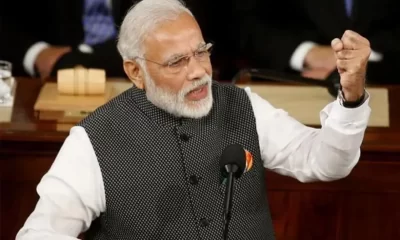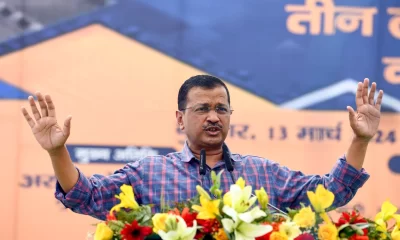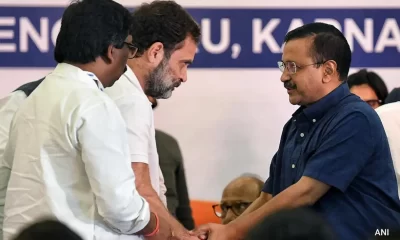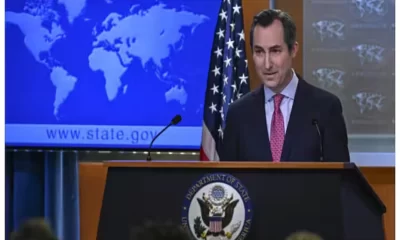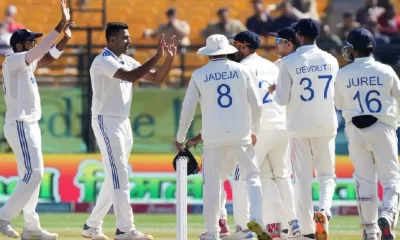Latest world news
N-Weapons: 120 nations want elimination, Bigwigs reluctant
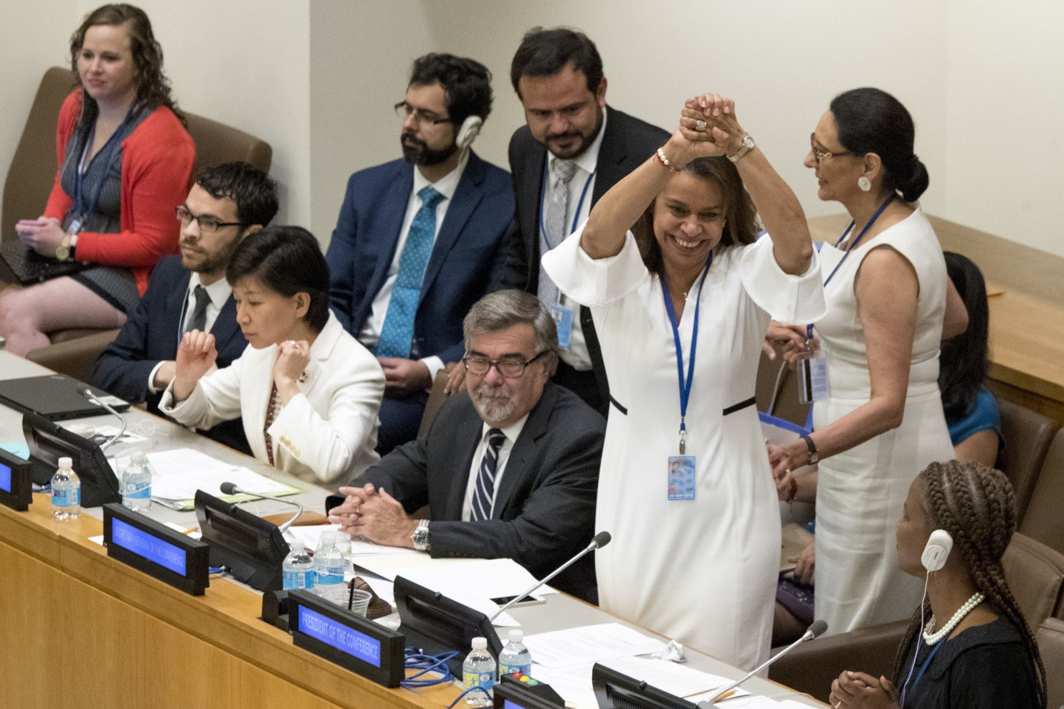
[vc_row][vc_column][vc_column_text]Can not eliminate single nuclear weapon, say three powers
At a time when nuclear-armed nations remain reluctant of giving up their power of destruction, more than 120 countries approved the first ever treaty to ban nuclear weapons at United Nations on Friday.
According to reports from New York based UN headquarters, Elayne Whyte Gomez, President of the UN conference, that has been negotiating the legally binding treaty, announced the result of the “historic” vote — 122 nations in favor. Singapore abstained, while Netherlands opposed it.
All NATO members boycotted the treaty negotiations except for the Netherlands, which has US nuclear weapons on its territory and was urged by its parliament to send a delegation. The Netherlands deputy UN ambassador Lise Gregoire-Van-Haaren told delegates her country couldn’t vote for a treaty that went against its NATO obligations, had inadequate verification provisions or that undermined the NPT — and “this draft does not meet our criteria.”
Gomez said 129 nations signed up to help draft the treaty, which represents two-thirds of the 193 member states. The treaty will be opened for signatures in September and come into force when 50 countries have ratified it, she said, and its language leaves the door open for nuclear weapon states to become parties to the agreement.
Gomez was quoted saying, “We have managed to sow the first seeds of a world free of nuclear weapons. We are saying to our children that yes it is possible to inherit a world free from nuclear weapons.” She further said “the world has been waiting for this legal norm for 70 years,” since atomic bombs were dropped in Hiroshima and Nagasaki in August 1945 at of the World War II.
On expected lines, all nuclear armed nations and some of their allies remained away from the treaty. US, Russia, Britain, India, China, Pakistan, North Korea and Israel have not supported the treaty. India’s stand has been that it would support such a ban only if all the countries, including other nuclear powers, also become signatory to it and it was not “discriminatory”. Additionally, it is also because India’s principal adversaries are also nuclear weapon states.
Other nations had a slightly different take. In a joint statement, the UN ambassadors from US, Britain and France said their countries don’t intend to ever become party to the treaty. They said, “It clearly disregards the realities of the international security environment and is incompatible with the policy of nuclear deterrence, which has essential to keeping the peace in Europe and North Asia for over 70 years.”
The three nation joint statement further says that they believe the treaty offers no solution to “the grave threat posed by North Korea’s nuclear program, not does it address other security challenges that make nuclear deterrence necessary.”
They said that ban that doesn’t address these concerns “cannot result in elimination of a single nuclear weapon and will not enhance any country’s security. It will do the exact opposite by creating even more divisions at a time when the world needs to remain united in the face of growing threats.”
The treaty requires of all ratifying countries “never under any circumstances to develop, test, produce, manufacture, otherwise acquire, possess or stockpile nuclear weapons or other nuclear explosive devices.”
It also bans any transfer or use of nuclear weapons or nuclear explosive devices — and the threat to use such weapons.
Iran, which signed an agreement with six major powers in 2015 to rein in its nuclear program, was among the countries that voted for the treaty. Other countries that voted in favour include Sweden, Switzerland, Austria, Brazil, South Africa, Egypt, Iraq, Qatar, Saudi Arabia, Indonesia and the Philippines.[/vc_column_text][/vc_column][/vc_row]
India News
Sri Lankan Minister Douglas Devananda says statements on reclaiming Katchatheevu island from Sri Lanka have no ground
Devananda told the media on Thursday that it is not unusual to hear such claims and counterclaims about Katchatheevu as elections are taking place in India.
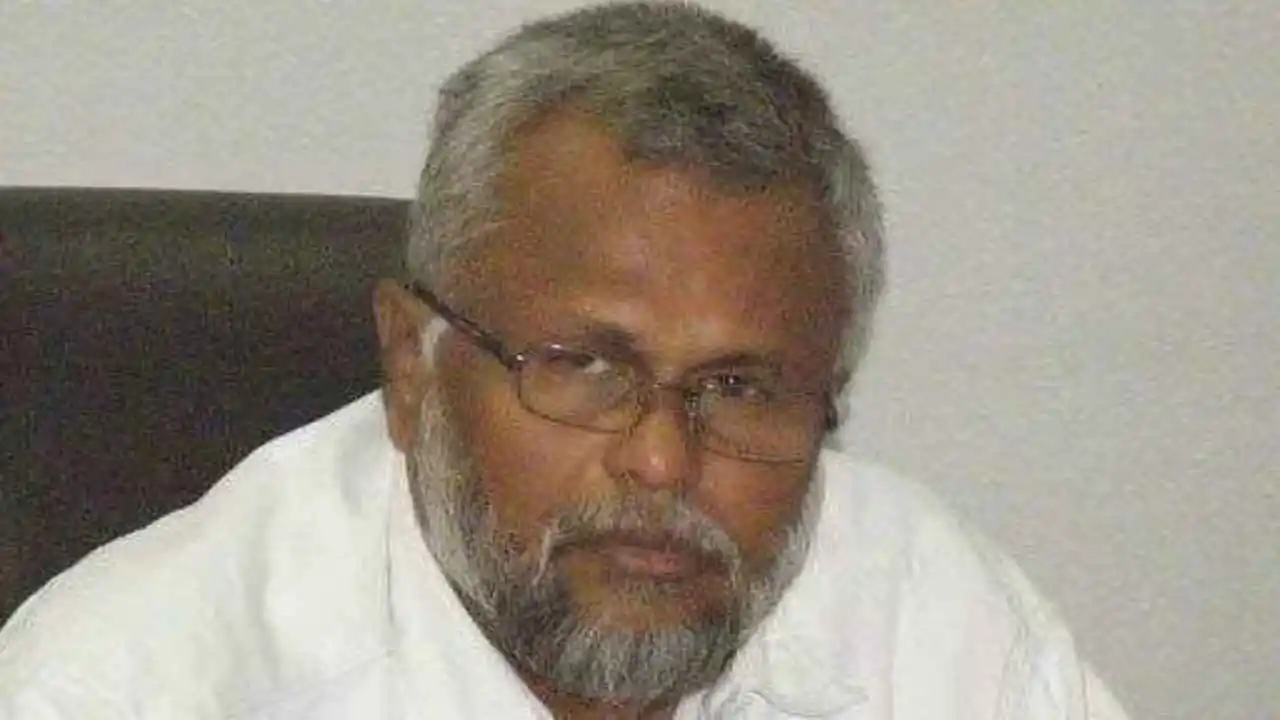
Sri Lankan Minister Douglas Devananda has said the statements from some political leaders in India on reclaiming Katchatheevu from the island nation have no ground. He told the media on Thursday that it is not unusual to hear such claims and counterclaims about the strategic island as elections are taking place in India.
The Sri Lankan Minister said he thought India is acting on its interests to secure this place to ensure Sri Lankan fishermen would not have any access to that area and that Sri Lanka should not claim any rights in that resourceful area. According to the 1974 agreement, Devananda said Indian and Sri Lankan fishermen can go fishing in the territorial waters of both countries until the pact was reviewed and amended in 1976.
The amended agreement resulted in fishermen from both countries being barred from fishing in neighboring waters. India’s ministry of External Affairs (MEA) on Thursday steered clear of the row surrounding Katchatheevu island. To a volley of questions on the Katchatheevu issue, MEA spokesperson Randhir Jaiswal reffered to External affairs Minister S Jaishankar’s recent comments on the matter.
He said he would like to talk about the issue that has been raised. He added the External Affairs minister has spoken to the press here in Delhi and also in Gujarat and has clarified all the issues. He said everyone should look into the press engagements and they would find the answers to their questions there.
The remarks from Devananda, a Sri Lankan Tamil, came days after the Narendra Modi government accused the Congress and its ally DMK in Tamil Nadu of overlooking national interests by handing over Katchatheevu island to Sri Lanka in 1974. The BJP has also been slamming the 2 parties for not ensuring the rights of the fishermen wanting to fish in waters around the island.
India News
US reiterates its call for fair, transparent, legal process for Delhi CM Arvind Kejriwal, speaks on Congress frozen accounts
The US spokesperson said that they are also aware of the Congress party’s allegations that tax authorities have frozen some of their bank accounts in a manner that will make it challenging to effectively campaign in the upcoming elections.
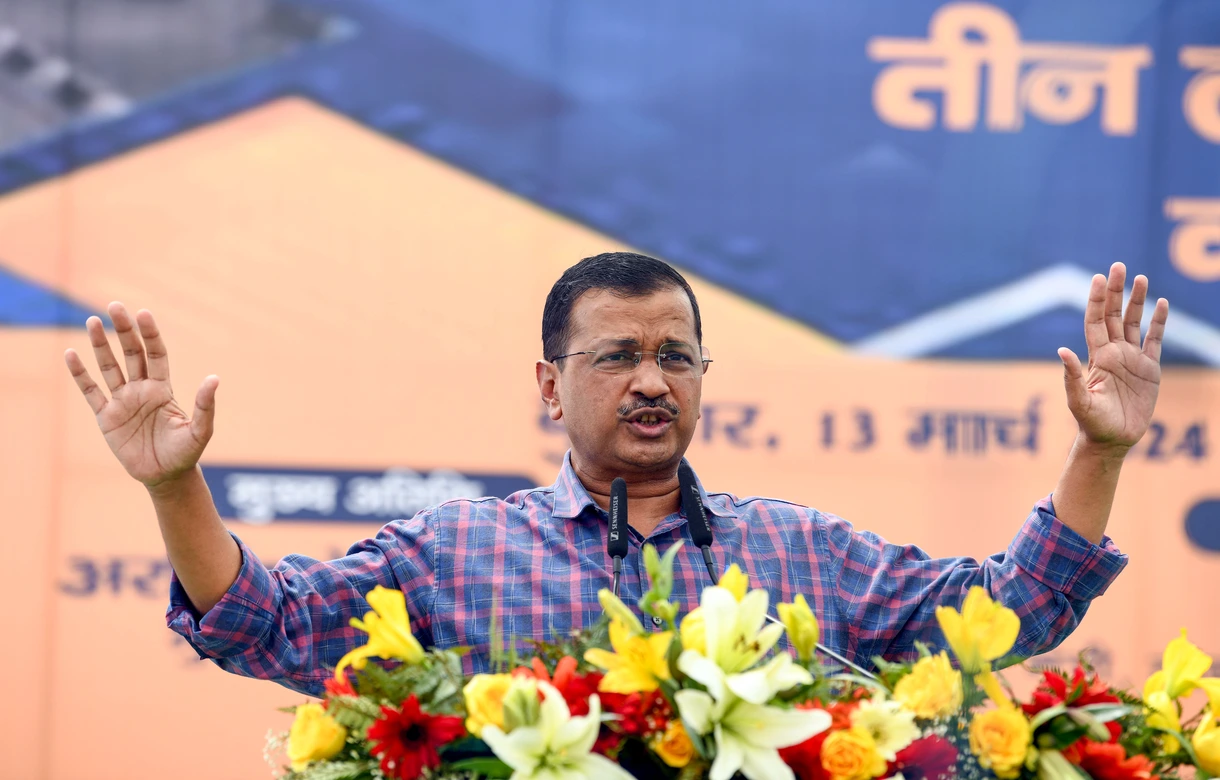
A day after India summoned an US diplomat over their remarks on the arrest of Delhi Chief Minister Arvind Kejriwal in the liquor policy case, the US reiterated its call for fair, transparent, timely legal processes on Wednesday.
Responding to questions on India summoning Gloria Berbena, the US Acting Deputy Chief of Mission in New Delhi, US State Department spokesperson Matthew Miller said that they will continue to follow these actions closely, including the arrest of Delhi Chief Minister Arvind Kejriwal. Notably, the meeting at the foreign ministry’s South Block office lasted nearly 40 minutes yesterday with India objecting strongly to the US remarks on the arrest of Arvind Kejriwal.
Matthew Miller also responded to a question on the Congress party’s frozen bank accounts. The US spokesperson said that they are also aware of the Congress party’s allegations that tax authorities have frozen some of their bank accounts in a manner that will make it challenging to effectively campaign in the upcoming elections. He added that the US encourages fair, transparent and timely legal processes for each of the issues.
Arvind Kejriwal was arrested last week by the Enforcement Directorate (ED) in connection to the Delhi liquor policy scam. Earlier, AAP leaders Manish Sisodia, Satyendar Jain and Sanjay Singh were arrested in the same case.
The External Affairs Ministry had earlier stated that states are expected to be respectful of the sovereignty and internal affairs of others, and this responsibility is even more so in case of fellow democracies, adding that it could otherwise end up setting unhealthy precedents.
The Ministry further emphasized that India’s legal processes are based on an independent judiciary which is committed to objective and timely outcomes. It mentioned that casting aspersions on India’s legal procedure is unwarranted.
The United State’s remarks followed days after Germany’s Foreign Office stressed that Delhi CM Arvind Kejriwal is entitled to a fair and impartial trial. The Indian government labelled their remark as blatant interference in internal matters.
Latest world news
5 Chinese nationals killed in suicide bomb attack in Pakistan
This is the third major attack on Chinese interests in Pakistan within a week.
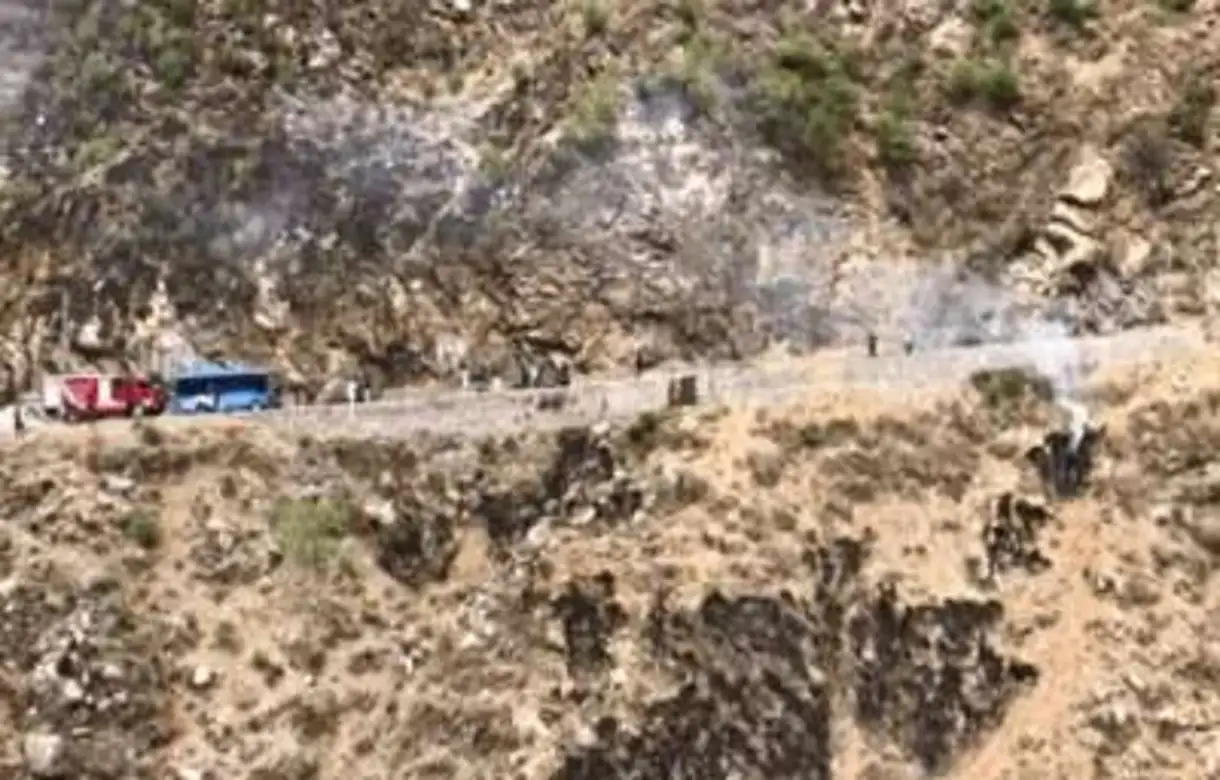
Nearly five Chinese nationals were killed in an explosion during an attack on their convoy by a suicide bomber in northwest Pakistan on Tuesday. Reportedly, the suicide bomber rammed an explosives-laden vehicle into a convoy of Chinese engineers travelling from Islamabad to their camp in Dasu, situated in the Khyber Pakhtunkhwa province.
Regional police chief Mohammad Ali Gandapur said that five Chinese nationals and their Pakistani driver were killed in the attack. As yet, none has claimed responsibility for the attack. Bisham Station House Officer (SHO) Bakht Zahir asserted that the incident was a suicide blast and the authorities concerned were collecting the evidence.
The Station House Officer further added that security arrangements were tightened at the spot and the bodies were being shifted to a hospital. He added that they will investigate from where and how the vehicle of a suicide bomber came and how it happened. Notably, this is the third major attack on Chinese interests in Pakistan within a week.
Previously, two attacks hit an airbase and a strategic port in the southwest province of Balochistan where China is investing billions in infrastructure projects. Several Chinese engineers and Pakistani construction workers have for multiple years been working on hydroelectric projects as part of Beijing’s Belt and Road Initiative in the western province of Khyber-Paktunkhwa.
Notably, Dasu is home to a significant dam project, has been a target of previous attacks. Earlier in 2021, the attack in Dasu resulted in the deaths of nine Chinese nationals, along with two Pakistani children. The incident occured when a bus carrying Chinese engineers and workers to the Dasu Hydropower Project site was targeted.
There was confusion surrounding the nature of the attack initially, with some reports suggesting it was a bus accident. Nonetheless, subsequent investigations revealed that it was indeed a terrorist attack. The bus was hit by a blast, leading it to plunge into a ravine.
-
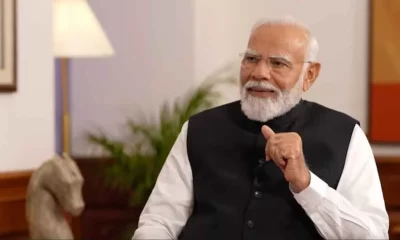
 2024 Lok Sabha Elections23 hours ago
2024 Lok Sabha Elections23 hours agoPrime Minister Narendra Modi reveals plan for ambitious 2047 Viksit Bharat project, says work for the project has been ongoing for last 2 years
-

 Entertainment24 hours ago
Entertainment24 hours agoPulkit Samrat, Kriti Kharbanda shed happy tears at their wedding, couple shares video on completing one month
-
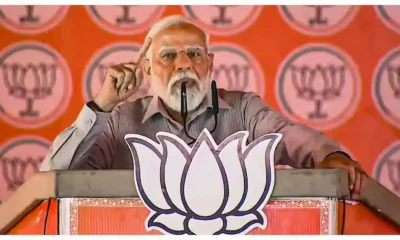
 2024 Lok Sabha Elections6 hours ago
2024 Lok Sabha Elections6 hours agoPrime Minister Narendra Modi says RJD is responsible for destroying Bihar, slams Lalu’s party over various corruption cases
-

 Cricket news8 hours ago
Cricket news8 hours agoIPL 2024: Travis Head smashes brilliant century, Pat Cummins takes 3 wickets as Sunrisers Hyderabad defeat Royal Challengers Bengaluru by 25 runs
-

 India News8 hours ago
India News8 hours ago2 shooters arrested from Gujarat for firing outside Salman Khan’s house
-
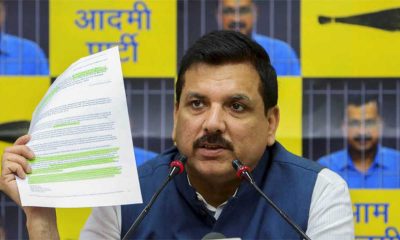
 India News7 hours ago
India News7 hours agoMy name is Arvind Kejriwal and I am not terrorist: Sanjay Singh reads Delhi CM’s message from Tihar Jail
-

 2024 Lok Sabha Elections6 hours ago
2024 Lok Sabha Elections6 hours agoLok Sabha elections 2024: BJP releases 12th list of candidates, Udayanraje Bhonsle to contest from Satara
-

 Food3 hours ago
Food3 hours agoBengaluru outlet selling gold and silver panipuri goes viral

